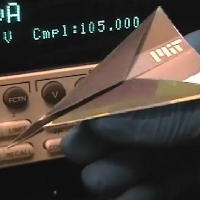SGU Episode 286: Difference between revisions
auto skel, show notes |
fix qow |
||
| Line 26: | Line 26: | ||
|forumLink = http://sguforums.com/index.php/topic,32849.0.html | |forumLink = http://sguforums.com/index.php/topic,32849.0.html | ||
|qowText = 'That which can be destroyed by the truth should be.' <!-- add quote of the week text--> | |qowText = 'That which can be destroyed by the truth should be.' <!-- add quote of the week text--> | ||
|qowAuthor = {{w| | |qowAuthor = {{w|P.C. Hodgell}} <!-- add author and link --> | ||
|}} | |}} | ||
Latest revision as of 15:55, 29 August 2013
| This episode needs: transcription, time stamps, formatting, links, 'Today I Learned' list, categories, segment redirects. Please help out by contributing! |
How to Contribute |
| SGU Episode 286 |
|---|
| January 5th 2011 |
 |
| (brief caption for the episode icon) |
| Skeptical Rogues |
| S: Steven Novella |
B: Bob Novella |
R: Rebecca Watson |
J: Jay Novella |
E: Evan Bernstein |
| Quote of the Week |
'That which can be destroyed by the truth should be.' |
| Links |
| Download Podcast |
| Show Notes |
| Forum Discussion |
Introduction
You're listening to the Skeptics' Guide to the Universe, your escape to reality.
This Day in Skepticism ()
- National Bird Day: http://www.nationalbirdday.com/
News Items ()
Mysterious Bird Deaths ()
Predictions 2010 and 2011 ()
- The Rogues review the accuracy of psychic predictions, and make some of their own
Predictions from 1931 ()
- http://www.abnormaluse.com/2010/12/views-of-2011-from-1931.html http://www.npr.org/blogs/money/2010/12/16/132105724/predictions-for-2011-from-1931
Mars News 2010 ()
Apocalypse 2011 ()
Printing Solar Cells ()
Who's That Noisy ()
- Answer to last week: an emu
Questions and E-mails ()
Question #1 - Thomas Kuhn ()
Hello SGU hosts, I'm a history teacher at a high school here in Tokyo, Japan. I love your show and sometimes use it in my class. The stuff you talk about on the show and the skeptical world view you advocate is very useful for my students, as Japan is a scientifically advanced country but has a lot of problems instilling critical thinking skills in its young people. My 'World History' class for 9th-graders covers the Renaissance and I have a unit that traces the shift in astronomical theories from Ptolemy all the way to Newton via Copernicus, Kepler Galileo, etc. When I teach it, I always emphasize that science is cumulative and that the scientific method is the best thing humans have come up with so far to understand the universe because it is objective and self-correcting when past theories are disproven through evidence. This Christmas break I was back home in Indiana hanging out with some college friends who are now in grad school. We were having a late-night, beer-fueled philosophical discussion about science and my friends started going on and on about Thomas Kuhn and how he proved that science was a not cumulative, inherently flawed, and just one of many, equally valid human perspectives. As a skeptic, I took issue with this and a friendly, but heated debate ensued. I think it was a tie, but I would have done better had I understood Kuhn's real argument. The version my friends were using seemed to be either flawed form the start or misinterpreted. Could the SGU hosts explain what Thomas Kuhn was trying to say in 'Structures of Scientific Revolutions' and also give your take on why you think postmodernists in the academic humanities (my friends and their teachers) have chosen him as their guide when they want to criticize science. Cheers, Triston McMillan St. Mary's International School Tokyo, Japan
Science or Fiction ()
Item #1: New research finds that hair color can be predicted with 80-90% accuracy from DNA analysis alone. Item #2: The longest follow up study of cholesterol and heart disease published to date failed to show any protective effect for increased levels of HDL, or so-called 'good cholesterol.' Item #3: Researchers have developed a prototype 'invisibility cloak' - but this one can render a submerged object invisible to sonar.
Quote of the Week ()
'That which can be destroyed by the truth should be.' -- P.C. Hodgell
S: The Skeptics' Guide to the Universe is produced by the New England Skeptical Society in association with the James Randi Educational Foundation and skepchick.org. For more information on this and other episodes, please visit our website at www.theskepticsguide.org. For questions, suggestions, and other feedback, please use the "Contact Us" form on the website, or send an email to info@theskepticsguide.org. If you enjoyed this episode, then please help us spread the word by voting for us on Digg, or leaving us a review on iTunes. You can find links to these sites and others through our homepage. 'Theorem' is produced by Kineto, and is used with permission.
References

|